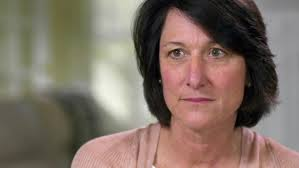Whistleblower Spotlight -- UNC Whistleblower Mary Willingham

Photo Credit: ESPN
By Gordon Schnell
This week’s “Whistleblower Spotlight” features Mary Willingham, the former academic adviser at the University of North Carolina who went public on what she sees as the university’s major failings in educating its big money athletes. In a talk she gave last week at the Durham Sports Club (as reported in WRAL.com), Willingham said she never wanted to become a whistleblower — no one really does — and still dislikes the tag. Nevertheless, she plans to continue on her quest to clean up college sports and reform what she describes as a “corrupt system.”
It all began for Ms. Willingham in 2003 when she began working at UNC as an academic advisor to student athletes, focusing primarily on football and basketball players. It did not take long for her to learn there was a major problem in the system. Among the most egregious failings was the steering of many of the school’s star athletes into fake classes as a means of maintaining their athletic eligibility when their academic pursuits or abilities were not up to snuff. Willingham found that for many of the so-called “student-athletes” she worked with, they were doing work at the same level as her own elementary school and middle school age children.
For years she complained to UNC athletics and admissions officials about the school’s academic failings for its athletes. Nothing was done. As Willingham saw it, the school was much more concerned about athletic eligibility than academic integrity. It was only after the NCAA opened an investigation in 2010 into whether UNC football players were receiving improper financial benefits when Willingham finally went public with her concerns. She released research showing the shockingly low literacy levels of some of the school’s top athletes.
Then came the university’s counter-attack against Willingham, fervidly challenging not only her data and findings but also her integrity and motives. She eventually resigned from the school because of the hostility she was facing and last summer filed a whistleblower retaliation suit against UNC. According to UNC history professor Jay Smith, in a post he wrote defending his close friend and colleague, the school’s attack on Willingham was never really about statistics. It was about defending the current financial model of big time college sports:
The clash is all about the current model of collegiate athletics and whether the University can tolerate in its midst an insider who is determined to expose the defects of the collegiate model. The vehemence of the assault on Willingham shows how desperately UNC administrators, and UNC sports fans, cling to the myth that all is basically well in the Emerald City. Willingham urges us to look behind the curtain; the wizards of South Building will use all the smoke, mirrors, and flames in their possession to distract public attention from the curtain and the ugliness behind it. They will even aim some of their flames at the person of Mary Willingham.
Willingham has found at least some redemption with the UNC’s release in late October of an independent report which backs up much of her long standing claims. It is the product of an eight-month investigation by former federal prosecutor and FBI counsel Kenneth Wainstein. He found UNC academic advisors steered student athletes to “irregular” or “paper” classes within UNC’s African and Afro-American Studies Department which were in reality sham classes with no faculty involvement and which never met. Apparently, this went on for 18 years, involving more than 3,000 students, nearly half of whom were from the “revenue sports” of football and men’s basketball.
For Willingham, there is no backing down from the crusade she began almost a decade ago to clean up the academic fraud associated with college sports. “It’s a corrupt system because many of these young men are passed through the system without really being given what they’re promised, which is a real education,” she said. “The front door is the problem, and no one is talking about it. The NCAA has lost its ability to be a regulatory body because this system has gotten so big and there is so much money involved.” And it’s “not just a UNC problem,” she acknowledged. “We know that it happens across the country.”
That is why she is going national with her campaign and reaching out to other universities to goad them to action. She also started the Literacy Before Legacy project to gather support in “sending a message to the leaders at the NCAA, universities, and in Washington DC, that this game of charades must end. Billions of dollars are being made off the backs of our college athletes and in exchange they deserve a real academic opportunity . . . [to ensure] our celebrated athletes have a real chance at the game of life.” For Willingham, it is all quite simple. “We can fix it. We can do better than this, and we can still enjoy game day.”
Tagged in: Education Fraud, Whistleblower Spotlight and Interviews,